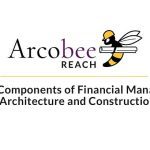Your project team is one of the greatest factors of success or failure on any Architectural or Construction project. Achieve success by sourcing an A-quality team & empowering them to design & build.
Your project team is one of the greatest factors of success or failure on any Architectural or Construction renovation & new build project. An Owner Manager can best succeed by sourcing an A-quality team, and then empowering the team to make decisions to build the project.
Today I’ll share with you one of the biggest success factors of any Architectural or Construction renovation project, and it’s probably not the thing you might expect. This is actually a principle I learned from reading several books over the years by entrepreneurs such as Steve Jobs and Elon Musk, who built incredibly successful and visionary companies. Now, what might this have anything to do with an Architecture or Construction project, or with any kind of property management? The core principle that such leaders have used to their success, is to empower their team to make decisions and to build their products. In other words, by choosing an A-quality team that strives for high performance and building excellent products, they were further able to build their envisioned products despite many challenges encountered along the way. Thus the products we see in their companies, such as at Apple, SpaceX, and Tesla, shows the power not just of an innovative product, but the power of an organized team of talented professionals all empowered to solve problems.
In an Architecture and Construction build, the single most important success factor on your project is simply the quality of your team and all the people in it. To put it simply, the more aligned and motivated your entire team is to work on your project, in addition to having the raw talent, experience, work ethic and drive to ensure success – that mentality and attitude will carry itself into the right execution of your project.
Remember that the team, for such projects, varies over the course of the project, but is also comprised of a few different entities:
-
Owner / Client
-
Owner Manager or Project Manager
-
Real Estate & Leasing Agents, including Brokers and Landlord representatives
-
Professional / Design Vendors
-
Construction and Specialty Subcontractors
-
AV / IT / Security Design
-
Furniture
-
Specialty Trades (for instance, Landscaping, Greenscaping, or another unique installation and component in your project)
-
Cleaning and Moving
An Architecture and Construction project is no Tesla, Apple, or SpaceX endeavor – and while I used the analogy to introduce this concept, in reality your Architecture and Construction projects are far different in their nature than those large companies. And yet, the principles and qualities that you should look for in your team, and also the ones you should avoid, are similar to how those large companies seek and acquire talent.
Here’s a quick list of the qualities you want to have in your team, as well as the ones you should be sure to steer far away from.
Qualities You Want In Your Team Members:
-
The team works to make sure the proper process is followed. Following the proper process includes following schedule sequence and milestones (including for design); properly coordinating design and procurement with all parties for an installation (as opposed to doing things piecemeal), and submitting proper documentation for the design, procurement, and installations.
-
Mindful and realistic on schedule & deliverable timeline. The right team and vendor will communicate their schedule milestones in advance, and will also notify you if there’s a situation that might require extra time, involves a delay, or needs additional services.
-
Members who know their scope isn’t created and delivered in a bubble – they must work with the full team to ensure the vendor’s product is integrated into the project properly, with all factors properly designed and coordinated.
-
For example, a conference room involves Architecture, Construction, MEP, AV, IT, and Furniture – and thus, these six vendors must operate as a team to deliver a properly functional conference room.
-
-
Members that properly and thoroughly review all documents. Your team should be detail focused and thorough, as such projects require intense periods of coordination and staged execution.
-
Excellent communication, including for when things go sideways. A good team player will advise the Owner Manager well in advance, when things are going differently than planned.
-
For example, a client may add additional design scope, which requires additional fees. On one recent project, my client wanted 9 Design Development meetings, instead of 3 total that the Architect had planned for. Thus, the Architect came back to us well in advance to request additional services for these meetings; it would have been poor form to simply submit a bill after the fact.
-
In our time of supply chain issues and late shipments, I also appreciate vendors whom provide thorough information on shipments, including tracking and arrival dates, every single week. Quality vendors I use also advise me of potential problems in advance, so we can already plan for remedial solutions; whereas, I’ve also worked with vendors who have let me know about known delays, the day before it was scheduled to arrive and be installed on a project, again poor form and both lazy and unreliable.
-
-
Remember that you also always want the A team working on your projects – the criteria here is very subjective, but I hope this gives insight into some important considerations.
-
Finally, the ideal team players are detail focused. As these projects are hyper detail oriented, we must work with vendors and players that understand this attention to detail, and are willing to make the time and commit the resources to it.
Qualities You Do Not Want in Your Team:
-
Vendors whom are too busy or preoccupied with other work and other projects, and thereby fail to prioritize YOUR project. This is one of the great recipes for schedule delays and cost overruns, as the team which is not focused misses critical details in coordination and execution.,
-
Vendors whom will assign you their B or C grade team, instead of their A team. This is self explanatory – lower quality staffing typically leads to lower quality outcomes.
-
Members that simply push and pass paper, instead of thoroughly and properly reviewing all documents. If a document is passed to your team, they should be checking it and reviewing it as standard practice, before proceeding with the next task. Additionally, all documents should be checked by the team prior to reaching the Owner’s level for final sign-off.
-
Vendors that submit paperwork, pricing/costing, invoices and bills with no back-up. Sometimes it is also incredibly frustrating when requests for back-up need to be repeated multiple times with the same vendor.
-
Vendors and companies that do not seek approval for additional work prior to requesting or performing it. I sometimes have vendors that try to send bills after the fact, stating that their original proposals or services did not cover some key component in the project, which they should have known about in the first place.
-
Vendors that fail to communicate properly.
-
One of the greatest red flags I’ve seen is when vendors purposefully avoid informing the Client, Owner, or Manager about issues on the project, and instead attempt to bypass the chain of command to avoid any blowback.
-
Other vendors simply don’t communicate or bother to follow up on their own, whether it’s for work completed, or for issues on the project that the Owner/Manager should be aware of well in advance.
-
So now, I’ve shared some bullet points above about what to look for and what NOT to look for when building your team. This is typically a process, rather than an event – it does take time to learn how to identify such qualities. I am finding more and more in recent years, that solid talent seems to be getting much harder to find; and thus building relationships and maintaining them with your trusted vendors becomes ever more important.
When interviewing some of my clients and vendors for Arcobee’s courses, I learned that this is one of the core challenges that we have as Owners and Managers – how can you create the right team in the first place?
In the next few weeks we’ll host a webinar on this very subject, focusing on how to find, interview, and build the right team that supports your Architecture and Construction project.
Much like this article, we’ll cover in depth qualities to seek and to avoid. Most importantly though, we’ll go through the fine details and step by step process of how to actually find the talented key players that will support your project.
We’re also building our offering on Arcobee, of trusted partners that you can utilize as part of your own project. These are people we’ve already vetted out through our own experience and those of others in working with such firms, so that you don’t have to do any heavy lifting on your own!
Architecture and Construction projects are complicated beasts to manage and execute. Money, materials, location, labor – management of all of these things helps keeps costs down and get the project done well individually – but it’s really the power of a powerful team, that has the potential to automatically work out all of those things for you and successfully execute your project!




 Table Of Contents
Table Of Contents

Leave a Reply